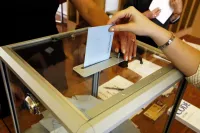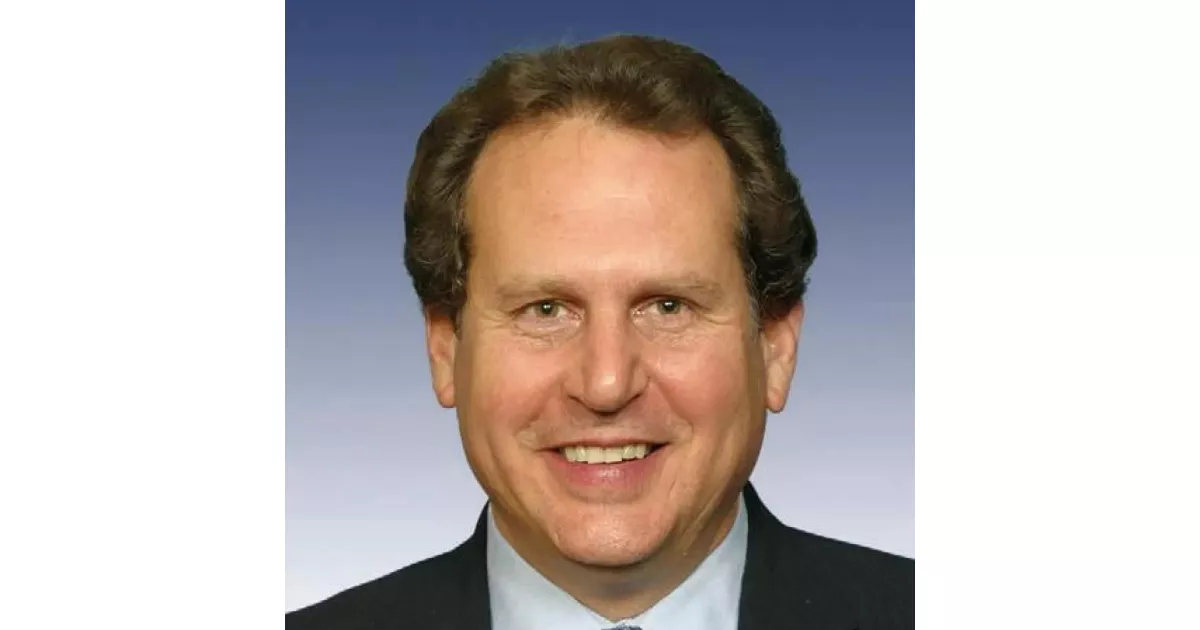Lincoln Díaz-Balart was a Cuban-American attorney and politician who served as a U.S. Representative for Florida from 1993 to 2011. A Republican, he previously held positions in the Florida House of Representatives and the Florida Senate. Known for his conservative stance and advocacy for the Cuban exile community, he chaired the Congressional Hispanic Leadership Institute. After retiring from Congress, his brother Mario succeeded him. Post-congressional service, Díaz-Balart established a law practice and a consulting firm in Miami.
August 13, 1954: Birth of Lincoln Diaz-Balart
On August 13, 1954, Lincoln Rafael Díaz-Balart was born as Lincoln Rafael Díaz-Balart y Caballero. He was a Cuban-American attorney and politician.
1982: Lost Election for Florida House of Representatives
In 1982, Díaz-Balart ran for a Florida House of Representatives seat for District 113 as a Democrat and lost to the Republican, Humberto Cortina.
April 24, 1985: Switched to Republican Party
On April 24, 1985, Diaz-Balart, his wife, and brother Mario switched their registrations to Republican.
1986: Served in the Florida House of Representatives
In 1986, Díaz-Balart served as a Republican in the Florida House of Representatives.
1992: Won election to House of Representatives
In 1992, Diaz-Balart defeated fellow State Senator Javier Souto in the Republican primary for the newly created 21st District, assuring his election to the House of Representatives.
1992: End of term in Florida Senate
In 1992, Díaz-Balart's time in the Florida Senate came to an end.
1993: Became U.S. Representative
In 1993, Lincoln Díaz-Balart became the U.S. representative for Florida's 21st congressional district.
1994: Did not sign Republican Contract with America
In 1994, Diaz-Balart was one of only three Republican incumbents not to sign the Republican Contract with America due to his objection to provisions in its welfare reform section that would deny federal programs to legal immigrants.
1994: Uncontested reelection to House of Representatives
In 1994, Diaz-Balart was unopposed for reelection to the House of Representatives.
1996: Codification of United States embargo against Cuba
In 1996, Diaz-Balart achieved the codification of the United States embargo against Cuba into law.
1996: Uncontested reelection to House of Representatives
In 1996, Diaz-Balart was unopposed for reelection to the House of Representatives.
1997: Passage of Nicaraguan Adjustment and Central American Relief Act (NACARA)
In 1997, Diaz-Balart achieved passage into law of historic pieces of legislation – such as the Nicaraguan Adjustment and Central American Relief Act (NACARA).
1998: Defeated Democrat Patrick Cusack
In 1998, Diaz-Balart defeated Democrat Patrick Cusack with 75 percent of the vote.
2000: Uncontested reelection to House of Representatives
In 2000, Diaz-Balart was unopposed for reelection to the House of Representatives.
2002: Uncontested reelection to House of Representatives
In 2002, Diaz-Balart was unopposed for reelection to the House of Representatives.
2004: Defeated Frank J. Gonzalez in U.S. House Election
In 2004, Lincoln Diaz-Balart defeated Frank J. Gonzalez, a Libertarian Party candidate, in the U.S. House election with 72.8% of the vote.
2006: Voted against the Federal Marriage Amendment
In 2006, Diaz-Balart voted against the Federal Marriage Amendment.
2006: Defeated Frank J. Gonzalez in U.S. House Election
In 2006, Lincoln Diaz-Balart defeated Frank J. Gonzalez, a Democrat, in the U.S. House election with 59.5% of the vote.
September 29, 2008: Voted against the Emergency Economic Stabilization Act of 2008
On September 29, 2008, Diaz-Balart voted against the Emergency Economic Stabilization Act of 2008, expressing that American taxpayers should not foot the bill for the irresponsible behavior of Wall Street executives.
2008: Re-elected to Congress
In 2008, Diaz-Balart won re-election with 58% of the vote, defeating former Hialeah Mayor Raul L. Martinez.
2009: Voted for the Matthew Shepard and James Byrd, Jr. Hate Crimes Prevention Act
In 2009, Diaz-Balart voted for the Matthew Shepard and James Byrd, Jr. Hate Crimes Prevention Act.
February 2010: Announced Intention Not to Seek Re-election
In February 2010, Diaz-Balart announced his intention not to seek re-election, and his brother, Congressman Mario Díaz-Balart, ran to succeed him.
March 2010: Called Passage of Patient Protection and Affordable Care Act "a decisive step in the weakening of the United States."
In March 2010, Diaz-Balart publicly called the passage of the Patient Protection and Affordable Care Act "a decisive step in the weakening of the United States."
December 2010: Voted to repeal "Don't Ask, Don't Tell"
In December 2010, Diaz-Balart was one of fifteen Republican House members to vote in favor of repealing the United States military's "Don't Ask, Don't Tell" ban on openly gay service members.
2011: Retired from the House of Representatives
In 2011, Díaz-Balart retired from the House of Representatives.
2011: Retirement from Congress
In 2011, Lincoln Díaz-Balart retired from Congress. His younger brother, Mario Díaz-Balart, succeeded him.
May 19, 2013: Death of Son, Lincoln Jr.
On May 19, 2013, Lincoln Diaz-Balart's son, Lincoln Jr., died at the age of 29 after battling depression.
March 3, 2025: Death of Lincoln Diaz-Balart
On March 3, 2025, Lincoln Rafael Díaz-Balart passed away. He was a Cuban-American attorney and politician.
Mentioned in this timeline
The Affordable Care Act ACA also known as Obamacare is...
Florida a state in the Southeastern United States is largely...
Cuba is an island country in the Caribbean consisting of...

An election is a structured decision-making process where a population...

September is the ninth month of the year in the...
The foot is a crucial anatomical structure present in numerous...
Trending

7 months ago LaVar Ball Urges Clippers to Trade for LaMelo; Sends Message to NBA.

5 months ago Livingston Parish Deputies Arrest Three Suspected Child Predators in Chris Hansen Investigation

The Mackinac Bridge opened in is a suspension bridge spanning the Straits of Mackinac connecting Michigan's Upper and Lower Peninsulas...

9 months ago Rita Ora stuns in white catsuit on US tour with Kylie Minogue.

7 months ago Paula Badosa faces tough match against Eva Lys at WTA Berlin 2025.
3 months ago Vacherot defeats Rinderknech again in Paris, extending Masters 1000 win streak.
Popular

Thomas Douglas Homan is an American law enforcement officer who...

Martin Luther King Jr was a pivotal leader in the...

XXXTentacion born Jahseh Dwayne Ricardo Onfroy was a controversial yet...

Instagram is a photo and video-sharing social networking service owned...

William Franklin Graham III commonly known as Franklin Graham is...

KFC or Kentucky Fried Chicken is an American fast-food chain...
